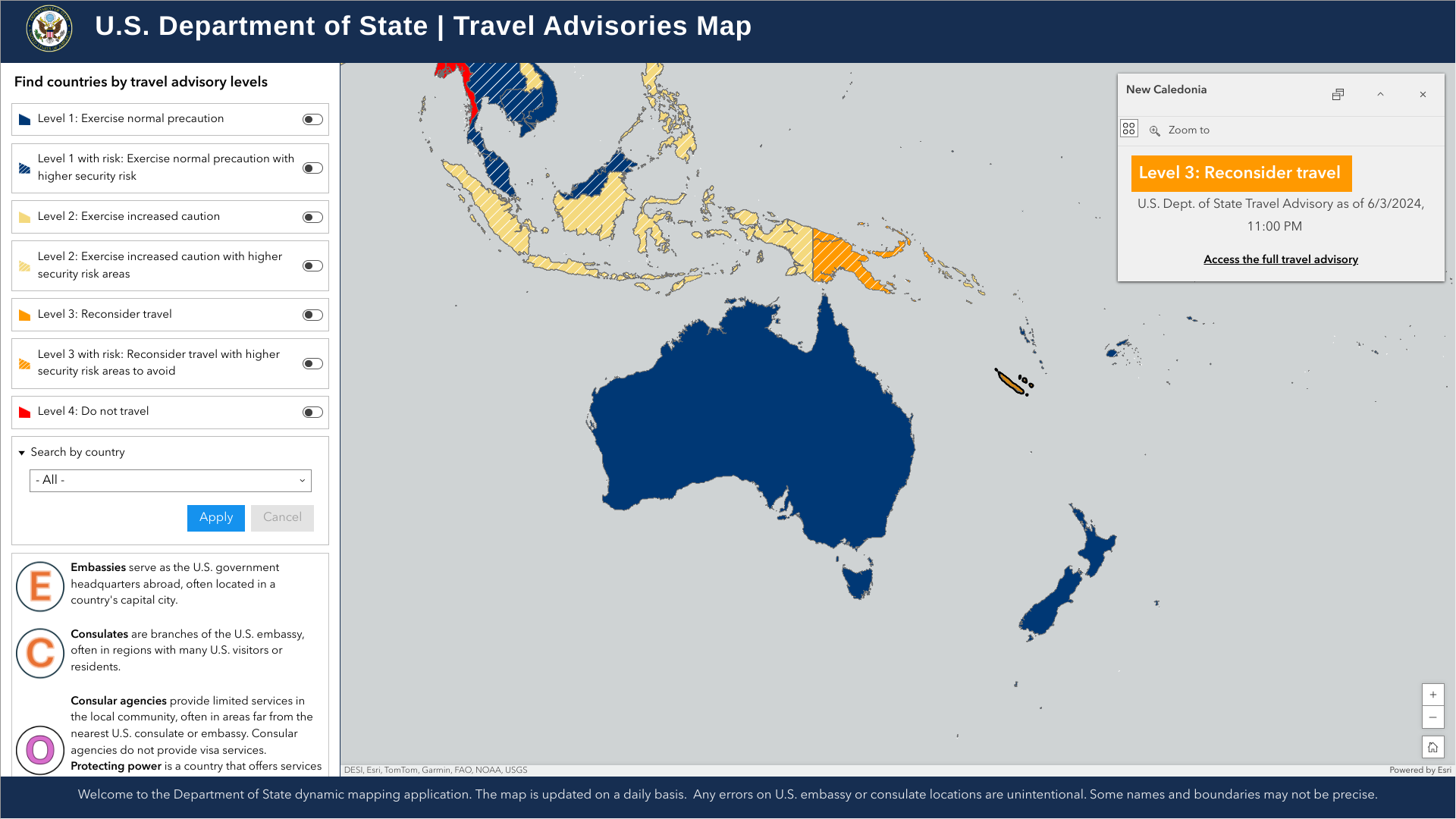Search API
The Lunar New Year, commonly known as the Chinese New Year, is celebrated in various ways by different cultures worldwide.
This year, the year of the Snake, official celebrations begin on January 29, 2025. Numerous festivals are expected to attract many international visitors through mid-February.
However, travelers must be aware of unique health issues in every destination, even in different areas of the same country.
Lunar New Year is an important festival observed by Chinese, Vietnamese, and Korean communities. Celebrations retain traditional customs such as feasts, gift exchanges, lantern lighting, and offers to ancestors.
For example, the Penn Museum winds into the Year of the Snake with its 44th annual CultureFest on January 25, 2025.
"Over the years, our collaboration has brought the richness of Asian heritage to diverse audiences, creating opportunities to learn, connect, and celebrate together," commented Holly Meng, President and CEO of the American Center for Asian Students, in a press release.
According to the U.K. Travel Health Pro reporting on January 6, 2025, when large gatherings occur, infectious diseases such as measles and respiratory infections can easily spread, quickly affecting large groups.
Additionally, the U.S. CDC says illnesses spread by mosquitoes, such as chikungunya, dengue fever, and Japanese encephalitis, are common throughout Asia and countries in the Pacific, so it is essential to prevent mosquito and insect bites.
The CDC suggests that anyone attending these celebrations speak with a travel vaccine expert before boarding an airplane.

In the Region of the Americas, 2024 has been marked as the worst year ever for dengue virus infections, 12.8 million, and related fatalities, 7,855.
From a country perspective, the United States has experienced a significant impact, with dengue cases increasing by approximately 43%. According to the U.S. CDC, 8,863 dengue cases were reported as of mid-December 2024, compared to 6,164 cases in 2023.
Within the U.S., the Florida Department of Health recently reported some unsettling news.
As of late December 2024, 911 travel-associated dengue cases had been reported, mainly by visitors to Brazil (61), Cuba (506), and Puerto Rico (41). Additionally, 85 locally acquired dengue cases were reported from ten counties, led by Miami-Dade (47).
In 2023, 609 travel-associated dengue cases were reported, and 186 humans contracted dengue while in Florida.
With international travel expected to increase in 2025, this CDC data suggests that more international visitors may unintentionally introduce one of the four dengue viruses in Florida next year.
Furthermore, since mosquitoes transmit dengue, locally acquired infections will likely increase next year.
From a disease prevention perspective, there is hope that access to dengue vaccines may improve in 2025 as approved vaccines increase production and vaccine candidates seek approvals.
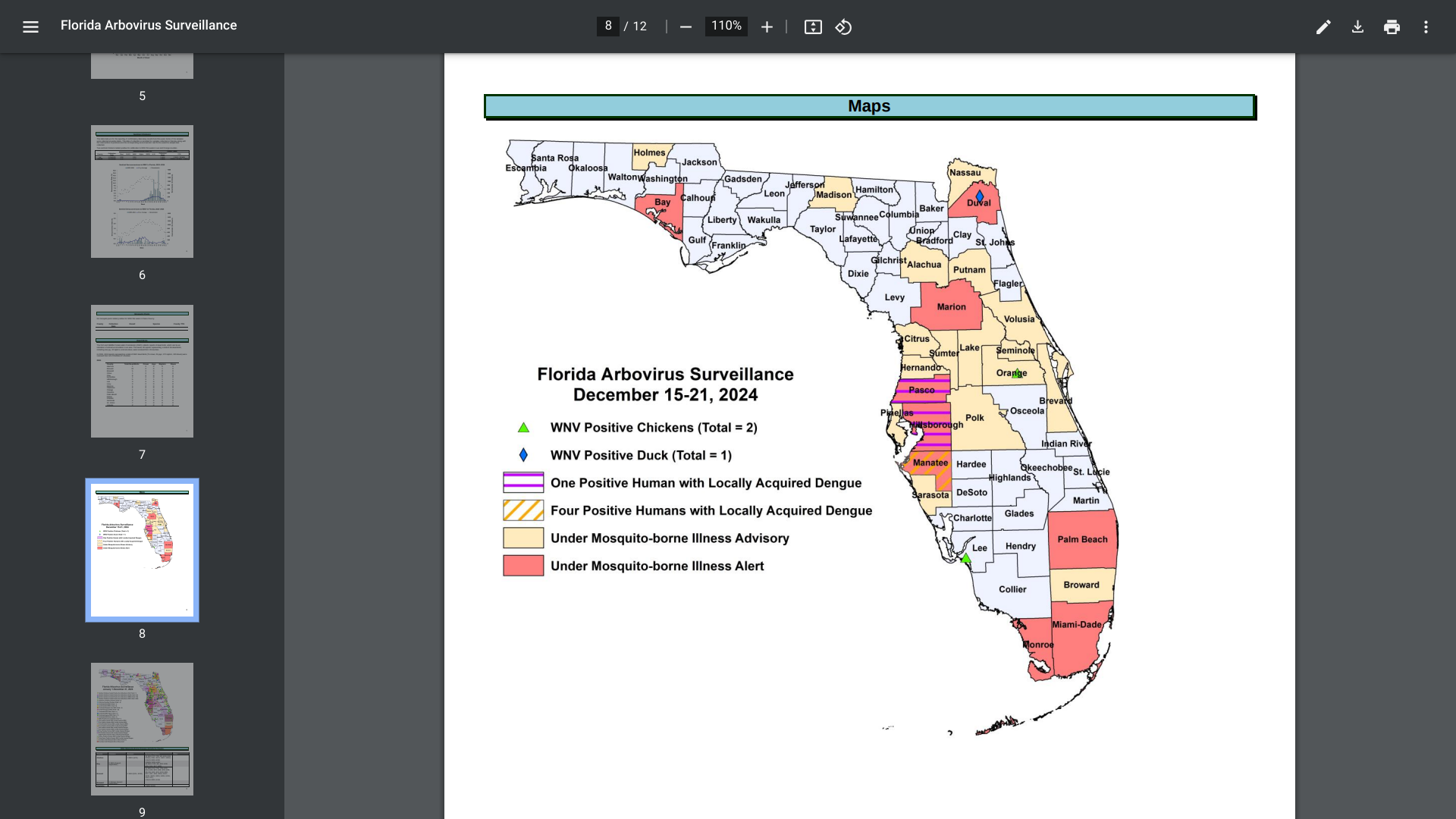
The Costa Rican Ministry of Health published a notice in December 2024 regarding changes to yellow fever certificate requirements for travelers, effective January 11, 2025.
The countries that are now considered at risk and for which yellow fever vaccination against yellow fever is required are the following: Bolivia, Brazil, Colombia, Ecuador, Guyana, French Guiana, Paraguay, Peru, Suriname, Venezuela, and Trinidad and Tobago. Additionally, countries in Africa have been added to Costa Rica's list.
When visiting Costa Rica, a yellow fever vaccination (YF-VAX or Stamaril) certificate may be required at the airport. Foreigners who arrive in Costa Rica and do not present the International Certificate of Vaccination against Yellow Fever to the immigration authority will not be allowed to enter the territory.
As of December 31, 2024, the YF vaccine is not part of the mandatory vaccination schedule, so it must be purchased at private pharmacies.
In addition to YF, Costa Rica has reported Chikungunya (45), Dengue, and Zika (25) cases in 2024.
Most of this year's Dengue cases (30,000) have been detected near San Jose in the mountains, not at Costa Rica's beaches.
Previously, in early December 2024, the U.S. State Department issued a Level 2: Exercise Increased Caution, Travel Advisory, for the Republic of Costa Rica. This U.S. advisory says visitors to Costa Rica should exercise increased caution due to various civil unrest targeting tourists.
Last year, about 2.4 million people visited Costa Rica, many traveling from the United States.
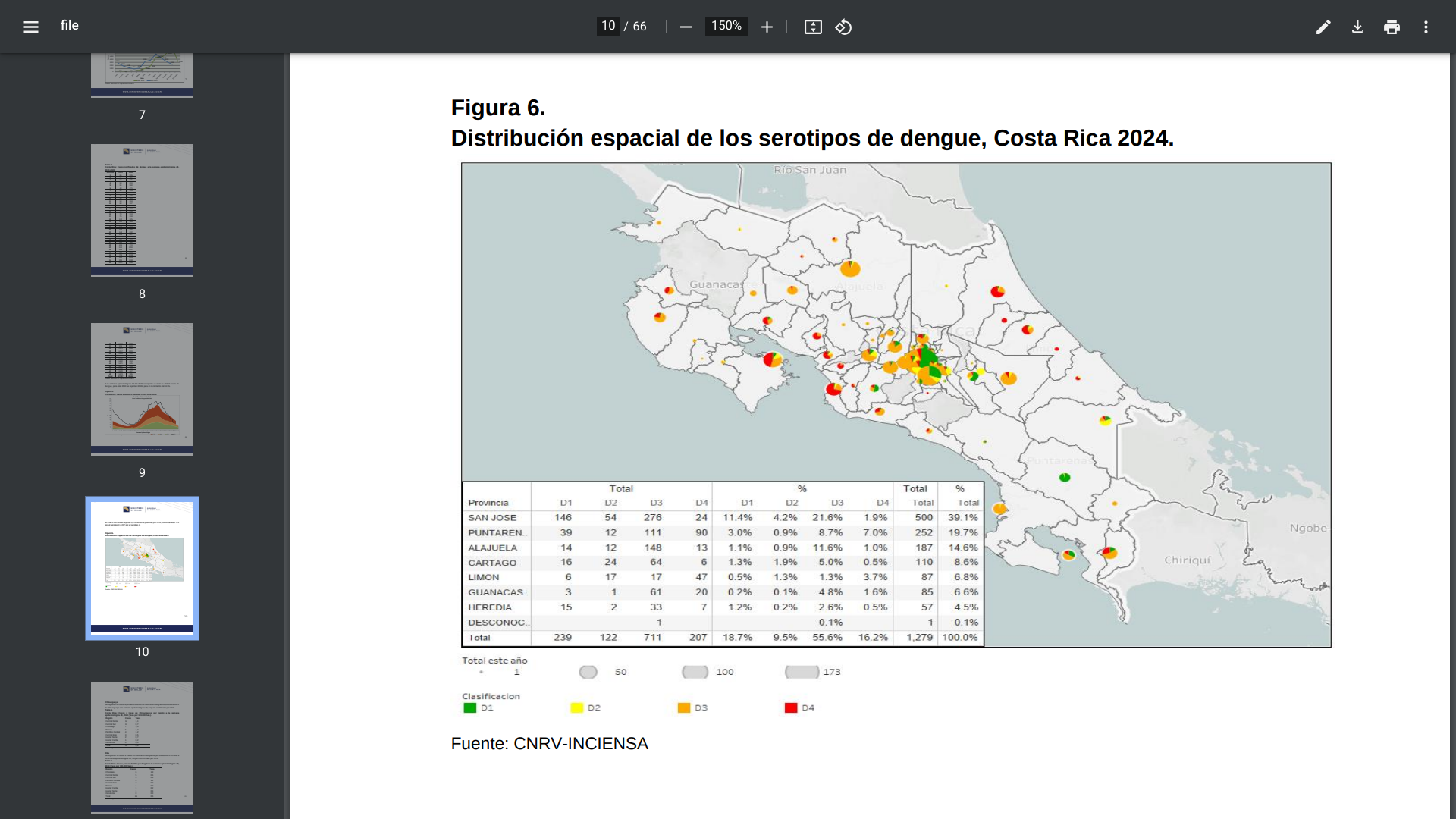
While the Region of the Americas experienced the most significant Dengue virus outbreak in 2024, with over 12.8 million cases and 7,855 related fatalities, effective vaccines have become available in many countries.
However, safety concerns about dengue vaccines focus on the potential for enhanced disease after vaccine-induced seroconversion and subsequent infection.
On December 28, 2024, in a Brief Report, clinical researchers present a fatal case of severe dengue in an unvaccinated traveler without known prior dengue virus infection but longitudinal serologic and molecular evidence for secondary infection.
In the context of this Dengue case and vaccination guidance for travelers, they discuss pre-vaccination screening and potential implications for travelers to regions with ongoing outbreaks and emphasize the importance of serostatus-independent vaccines.
As of December 30, 2024, Dengvaxia® and Qdenga® vaccines are not offered in the U.S.
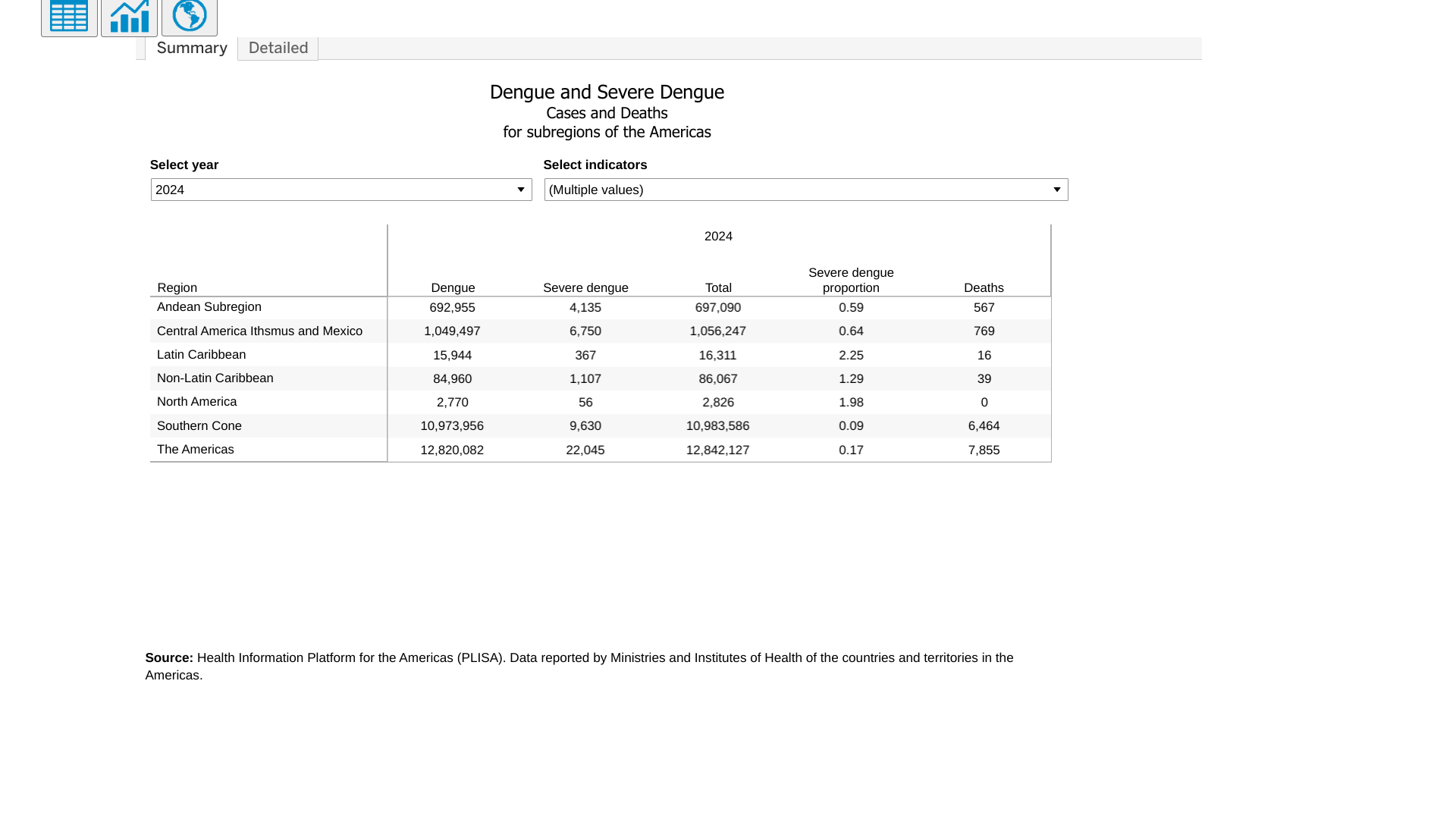
According to Regional Health Agencies (ARS), France has reported the highest number of indigenous (local) dengue cases in 2024 since the implementation of enhanced surveillance in 2006.
As of December 24, 2024, the ARS assessment for this 2024 season shows 11 outbreaks of local dengue transmission totaling 83 cases, mainly occurring in Provence-Alpes-Côte d'Azur (Marseille, 1.9 million pop.) and Occitanie.
As of December 17, 2024, 4,694 imported dengue cases had been reported this year, the highest annual number ever. Epidemiological investigations identified imported dengue cases from travelers returning to France from Guyana, Reunion, and Indonesia.
ARS also reported one Indigenous case of chikungunya for the first time in Ile de France.
Entomological and epidemiological investigations were immediately implemented for each disease outbreak, accompanied by vector control actions.
From a disease prevention perspective, France offers various chikunguna and dengue vaccines.
For travelers departing from the U.S., Valneva SE's IXCHIQ® chikungunya vaccine is offered at numerous travel clinics and pharmacies.
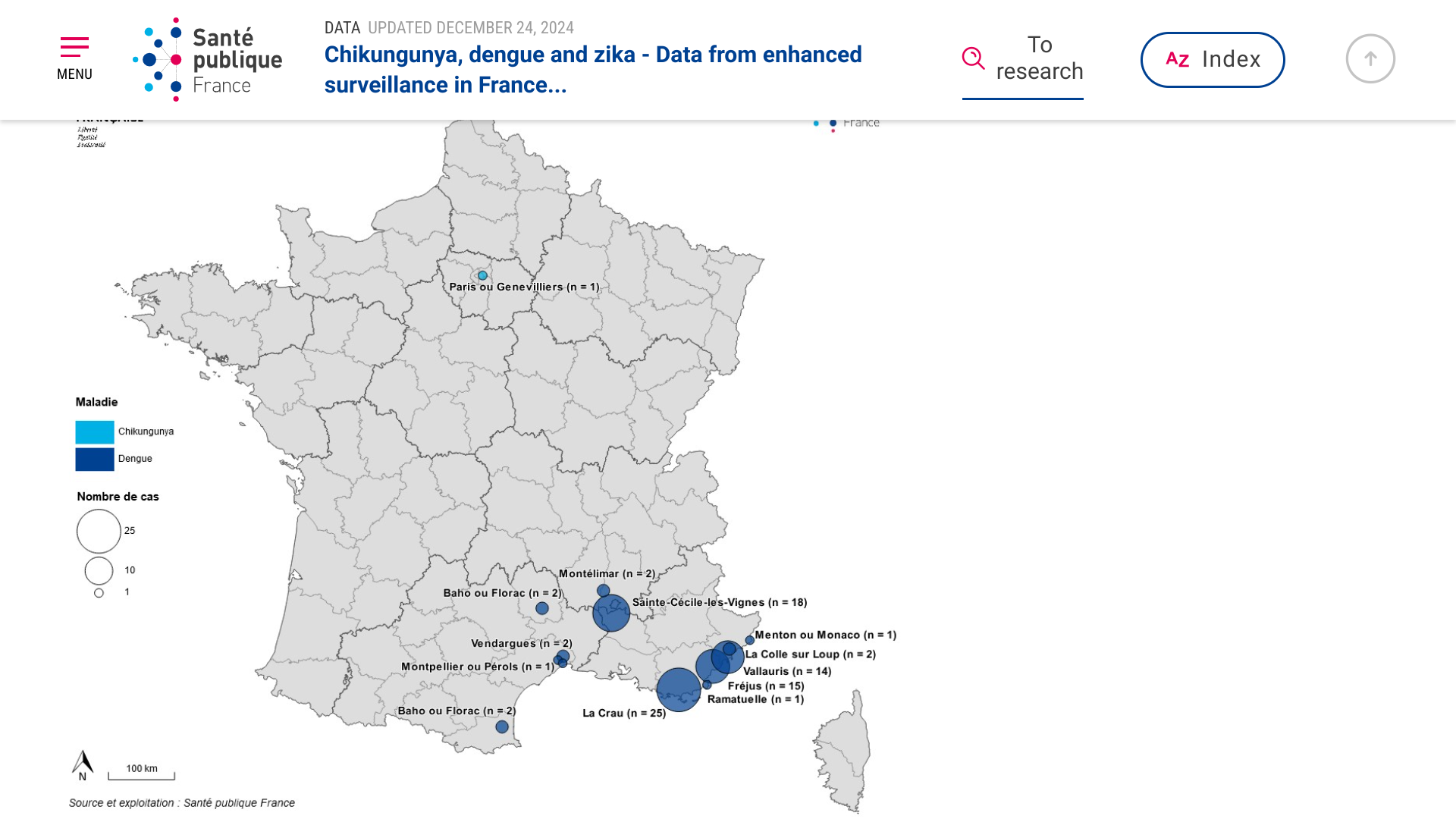
The U.S. Department of State recently reaffirmed its Level 2: Exercise Increased Caution for the Kingdom of Spain.
On December 23, 2024, the State Department stated visitors to Spain should exercise increased due to civil unrest. Furthermore, demonstrations are common and may occur in response to political or economic issues, on politically significant holidays, and during international events.
International travelers visiting Spain should enroll in the Smart Traveler Enrollment Program to receive digital alerts, which makes locating you in an emergency easier.
When in Spain, U.S. citizens can visit the U.S. Embassy at Calle Serrano, 75, 28006 Madrid.
From a health perspective, the U.S. CDC and the UK say visitors should check the list of vaccines and medicines needed at least a month before visiting Spain. For example, the ECDC reported locally acquired dengue cases in Spain in 2024.
Dengue is an Aedes-borne disease established in Spain's Catalonia region.
Colin Johnston, Senior Medical Entomologist at UKHSA, informed local media, "The increasing number of dengue (8) and malaria cases that we are seeing now in the UK are travel-related."
As of December 25, 2024, Dengue is a vaccine-preventable disease.
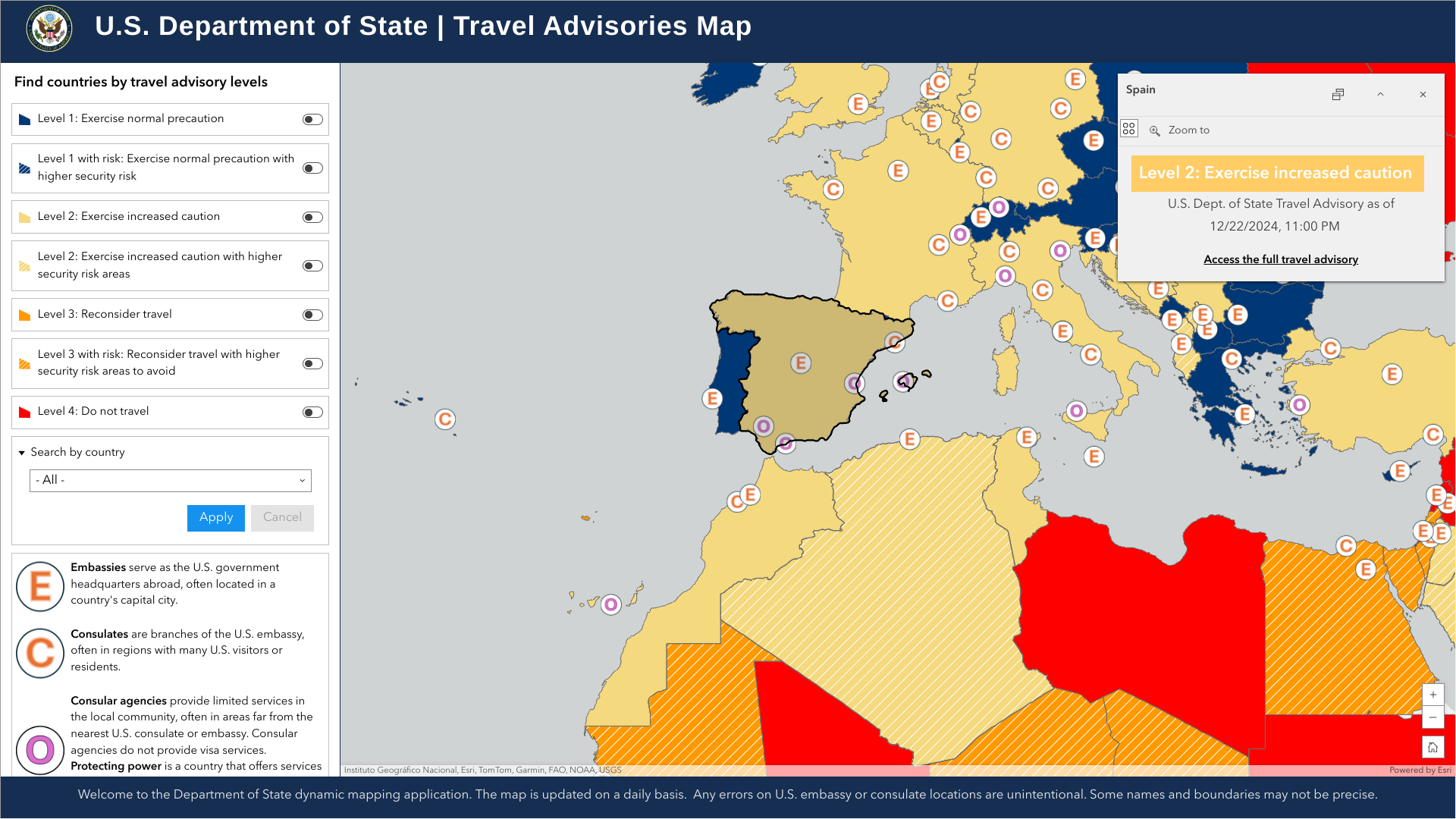
The U.S. Department of State updated its travel advisory to Level 3 for the Republic of Vanuatu, a nation in the South Pacific Ocean east of Australia comprising roughly 80 islands.
The advisory was updated due to infrastructure damage from a recent earthquake. Numerous buildings in Vanuatu sustained severe damage, and curfews are in effect in some areas.
On December 20, 204, U.S. citizens were advised to reconsider travel. The government's ability to provide emergency assistance to U.S. citizens in Vanuatu was limited, and departure options were disrupted.
The nearest U.S. Embassy is in Harbour City Road, Konedobu, Port Moresby, NCD, 121, Papua New Guinea.
Regarding departure options, Port Vila's Bauerfield Airport is reopening on December 22, 2024. Therefore, visitors should contact their airlines to confirm travel plans.
Enroll in the Smart Traveler Enrollment Program to receive Alerts and make locating you in an emergency easier.
And from a health perspective, the U'S. U'S writes, 'Ensure you are up-to-date on all routine vaccines before every trip. And some travel vaccines may be needed to protect visitors from chikungunya and dengue. These vaccines are offered at travel clinics and pharmacies in 2024.
